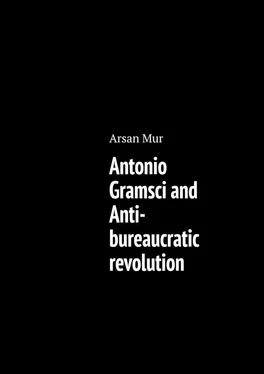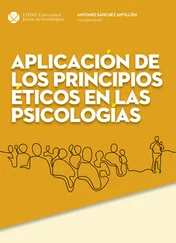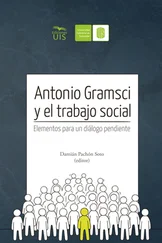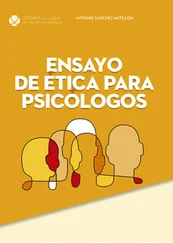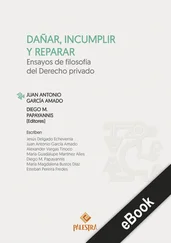Arsan Mur - Antonio Gramsci and Anti-bureaucratic revolution
Здесь есть возможность читать онлайн «Arsan Mur - Antonio Gramsci and Anti-bureaucratic revolution» — ознакомительный отрывок электронной книги совершенно бесплатно, а после прочтения отрывка купить полную версию. В некоторых случаях можно слушать аудио, скачать через торрент в формате fb2 и присутствует краткое содержание. ISBN: , Жанр: Прочая научная литература, на русском языке. Описание произведения, (предисловие) а так же отзывы посетителей доступны на портале библиотеки ЛибКат.
- Название:Antonio Gramsci and Anti-bureaucratic revolution
- Автор:
- Жанр:
- Год:неизвестен
- ISBN:9785005308733
- Рейтинг книги:5 / 5. Голосов: 1
-
Избранное:Добавить в избранное
- Отзывы:
-
Ваша оценка:
- 100
- 1
- 2
- 3
- 4
- 5
Antonio Gramsci and Anti-bureaucratic revolution: краткое содержание, описание и аннотация
Предлагаем к чтению аннотацию, описание, краткое содержание или предисловие (зависит от того, что написал сам автор книги «Antonio Gramsci and Anti-bureaucratic revolution»). Если вы не нашли необходимую информацию о книге — напишите в комментариях, мы постараемся отыскать её.
Antonio Gramsci and Anti-bureaucratic revolution — читать онлайн ознакомительный отрывок
Ниже представлен текст книги, разбитый по страницам. Система сохранения места последней прочитанной страницы, позволяет с удобством читать онлайн бесплатно книгу «Antonio Gramsci and Anti-bureaucratic revolution», без необходимости каждый раз заново искать на чём Вы остановились. Поставьте закладку, и сможете в любой момент перейти на страницу, на которой закончили чтение.
Интервал:
Закладка:
6. Finally, revolutions are also the result of an imbalance in the disproportionate increase in state power, which creates a gap between the constitution and society. As a result, the constitution reflects social realities, the balances of social and economic forces.
If this balance is violated, the political order collapses and will either be changed or perish. For example, if the number of poor people increases, the state may collapse. Similarly, if there are too many rich people in government, this can lead to oligarchic rule.
Regarding political factors, issues such as electoral intrigue, carelessness, neglect of small changes, the growth of the reputation and power of a party or union of parties, lead to a deadlock and, finally, foreign invasion.
A brief explanation of these factors is as follows:
1. Manipulation of votes violates people’s faith in the constitutional process. Electoral manipulation not only destroys society, but also destroys virtue and a good life, and gives rise to new social problems, such as corruption, bribery, nepotism, favoritism, etc.
2. The foundations of the state may be destroyed due to willful negligence leading to revolutions. If rulers are careless in choosing officials, antisocial elements will undermine all politics. In such circumstances, the trivial issue of selecting suitable officials without due care is the deadliest.
3. A statesman should never neglect any small issue related to governance. If decisions are made in a hurry without considering its consequences, such actions are likely to cause a storm. It is for this reason that Aristotle stated that the need for a complete overhaul of the entire system appears when the need for small changes is ignored.
In addition to the general causes of the revolution, Aristotle also identified their specific causes in various types of states. For example, in democracies, discontent is caused by demagogues who attack the rich and incite hatred among people, and this situation leads to conflict.
Revolutions occur in the oligarchies when the masses are unpleasantly affected by officials, which leads to contention within the ruling class. Personal disputes can contribute to inciting social discord and, although this is invisible, changes in the class structure of society can imperceptibly change the ethos.
Aristotle further believed that it was not necessary for the oligarchy to become a democracy or vice versa, but they could completely turn into a completely different system. In the aristocracy, revolutions occur when the circle of rulers is unacceptably narrowed. This imbalance in the balance of various elements of state power causes a revolution.
As for monarchies and tyrannies, the revolutions, according to Aristotle, are caused by arrogance, resentment, fears, disrespect, the desire for glory, the influence of neighboring states, sexual crimes, and physical ailments.
Aristotle, to ensure security from revolutions, proposed the following ways to prevent them:
He urged the rulers to believe in the principle of “prevention is better than cure”. This principle consists primarily in the desire to ensure that rulers obey the laws even in the smallest matters. He believed that a violation, even in small amounts, sooner or later lead to complete disrespect and violation of the law. Further, if people begin to break the laws, following the example of the rulers, the entire public order will be in jeopardy.
The thinker also strongly advised the rulers to believe that they could either constantly deceive a few people, or all people for some time, but never – all people and always. An attempt to constantly deceive the whole state, according to Aristotle, will inevitably end in a revolution.
He also said that rulers should exercise due care in relation to their subjects: they should not distinguish between an officer and a commoner, between leading and non-leading, etc. To prevent a revolution, according to Aristotle, it is necessary to observe the principle of democratic equality.
In addition, each citizen, according to the philosopher, should be given a chance to express his opinion about the government, and the length of time officials should be short. If, according to Aristotle, the state is built in this way, the oligarchs and aristocrats will not get too much power.
Since internal hostility between rulers would destroy the strength and unity of the state, the ruler should always be vigilant and keep in control all the quarrels and discords between the rulers. No citizen or official should be promoted to the highest position or suddenly dismissed.
Those who have gained too much wealth should be ostracized or exiled, and no society should be allowed to establish its dominance over another. Aristotle also wrote that government institutions should not be profitable. In this case, public office will not attract the poor, and will not give a big advantage to the rich.
The poor in this format of state activity are working and getting richer, while the rich are holding positions and are not getting rich from it. Under these conditions, the poor are satisfied that they have a job, and the rich are satisfied that they occupy high positions.
He further stated that the rich should not show their wealth, since it arouses envy, among others. Finally, a statesman interested in preventing revolution must prevent the extremes of poverty and wealth, since it is this extreme that leads to conflict. He should encourage colonization as a way out to solve the problem of overpopulation, and the leader should cultivate religion, which, according to the philosopher, also prevents revolution.
Aristotle also suggested that an unworthy ruler could never stop the revolution. To ensure their official compliance, rulers must first be faithful to the constitution, and secondly, they must be competent, capable, worthy and fulfill their duties; thirdly, they must be kind and fair.
Finally, Aristotle argues that the right education system is the most effective tool to deter revolutionary instinct and maintain public order.
Traditionally, the concept of the origin of the “theory of revolution” is associated with a study by Lyford Edwards “The Natural History of the Revolution” (1927), followed by the writings of Crane Brinton and George Petty (1938). “The Sociology of Revolution” (1925) by Pitirim Sorokin also belongs to this galaxy. The works of Edwards, Brinton and Petty are presented in historiography as the “first wave” of researchers in the theory of revolution – an approach that has been around since the 60s. XX century moves from work to work, but this approach is not entirely correct. A century before Sorokin, Edwards, Petty, and Brinton, several small works were published aimed at identifying and studying the general features and conditions of all revolutions and creating a theory of revolution.
In 1861—62 there are two more works aimed at the general theory of revolutions: a lecture on revolutions by G. Jiman (1861) and “History and Theory of Revolutions” (1862) by Joseph Clark. If we add to this the works of K. Marx and F. Engels “Manifesto of the Communist Party” (1848), separate works of Marx: “The Class Struggle in France” (1850), “18 Brumaire of Louis Bonaparte” (1852), “Civil War in France” (1871), and Engels – “Revolution and counter-revolution in Germany” (1852), – then for a forty-year period we get a fairly large amount of work devoted to the theory of revolution (for the middle of the 19th century, a dozen books on one topic over 40 years are a very high indicator). Thus, in the period between the two French revolutions – the revolution of 1830 and the Paris Commune of 1871, the first real “wave” of special interest in problems (rather than a separate national revolution) is observed.
The next such surge of interest in the theory of revolution appeared at the beginning of the 20th century, in which the most striking works were Lenin’s articles “May Day Action by the Revolutionary Proletariat” (1913) and “The Collapse of the Second International” (1915), “State and Revolution” (1917). And only the next “wave” of interest in the development of the topic came in 20—30s XX century and is associated with the names mentioned Sorokin, Edwards, Petty, and Brinton.
Читать дальшеИнтервал:
Закладка:
Похожие книги на «Antonio Gramsci and Anti-bureaucratic revolution»
Представляем Вашему вниманию похожие книги на «Antonio Gramsci and Anti-bureaucratic revolution» списком для выбора. Мы отобрали схожую по названию и смыслу литературу в надежде предоставить читателям больше вариантов отыскать новые, интересные, ещё непрочитанные произведения.
Обсуждение, отзывы о книге «Antonio Gramsci and Anti-bureaucratic revolution» и просто собственные мнения читателей. Оставьте ваши комментарии, напишите, что Вы думаете о произведении, его смысле или главных героях. Укажите что конкретно понравилось, а что нет, и почему Вы так считаете.
